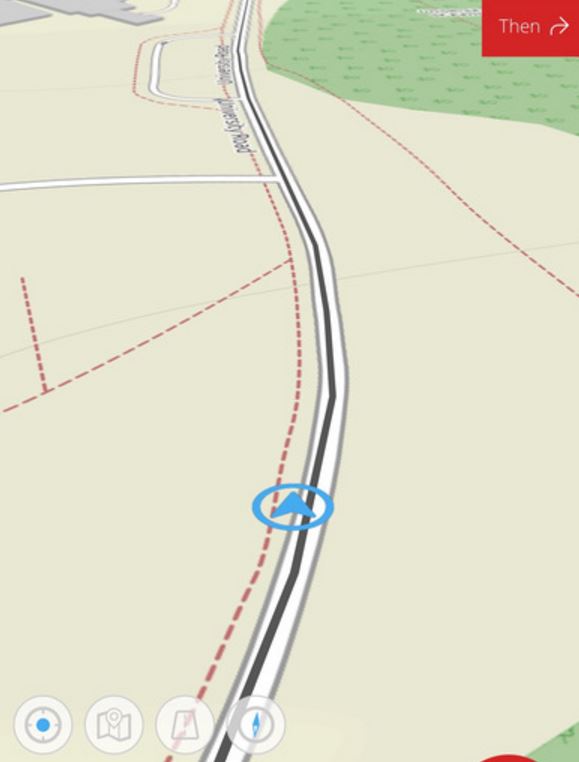BA issues statement as retailers round on Reid’s “value for money” claim
The Bicycle Association has this morning issued a statement on an ongoing investigation into the spend of segments of the industry-funded Bike Hub Levy.
Having first been raised on industry-only forum BikeTradeBuzz.com, contributors to the industry levy – the longest running of its kind in the UK – began to ask for detail relating to historical expenditure by the Bicycle Association. Independent bike retailer contributions make up a substantial chunk of the levy, which primarily serves to promote grassroots cycling, from kids’ training to funding Mayoral Hustings on cycling policy. The levy works by taking a 0.1% cut of sales from volunteer retailers and suppliers and has tallied up over £4.4m in 12 years.
There has however been a growing discontent relating to some segments of the spend and the ACT – though no longer involved in the Levy scheme – yesterday published a summary of Bicycle Association accounts detailing the industry fund, reportedly in response to requests from its retail members. The BikeHub.co.uk website still lists the ACT as a component of the scheme, though the partnership ceased “a decade or more ago”, according to a director we spoke to.
Within the data published, ACT director Chris Compton flagged a disparity between the accounts and the reported cost of the Bike Hub navigation app.
“There are evidently large gaps in current reporting e.g. the BAGB website states “Bike Hub’s iPhone and Android journey planning app cost £15,000 to develop.” Whereas the published findings reflect costs to date of c.£96,000!”
This prompted retailers and bicycle businesses on the BikeTradeBuzz Forum to dig further into the accounts before questioning freelance journalist Carlton Reid, who has been the driving force of the Bicycle Association’s digital products, on a number of detailed spends. Reid has previously described his services as “very good value for money” when addressing retailers on the trade-only portal.
When pressed on the spend relating to the now redundant Bikesforall domain, the BikeHub app and BikeHub.co.uk Reid declined to go into detail, instead offering: “As a freelance writer – I used to provide content to BikeHub.co.uk before it was mothballed, and still write tweets for @BikeHub – it’s not my place to comment on matters that I am not in charge of. Steve Garidis has made it plain he is now working on publishing the details for the spend in 2015. Info for all other years since 2004 have long been on the BA website.”
Reid has this morning posted to BikeBiz.com a piece questioning the “anonymous forum” whistleblower’s intentions and further rounding on C2Zero Ltd director Mark Walmsley. Within this piece Reid does not specifically mention the ACT who posted the financials in question earlier this week.
The Bicycle Association in its statement, found at the base of this page, is to push forward the publication of the 2015 accounts and will look to reinvigorate the method by which the industry contributes to the levy. Part of this proposal is a new fund dubbed the Bicycle Industry Fund, which proposes a “fair trade” style badge to flag contributors to the grassroots cycling effort to buying consumers.
The costs in question
The BikeForAll website, a predecessor to BikeHub.co.uk and one which was live from 2004 to 2011 racked up costs of £138,795. According to the host of the domain, during five of those years the website published 677 articles.
Reid told posters on the BikeTradeBuzz forum that the calculations speculated on cost per article would still make his content “*less* than the National Union of Journalist’s rate per 1,000 words.”
WordPress-based BikeHub.co.uk tallied up costs of £32,632 over four years since 2010. Between 2010 and 2011 both domains were live simultaneously, costing the Levy £41,140 and £27,680, respectively. 
The Tinderhouse-developed and free to download Bike Hub App, which Reid concedes handles far better on iPhone and can be “flakey on Android”, racked up costs totaling £95,804 between 2010 and 2015.
On this Reid offered: “Some Android’s can be a bit flakey because, unlike Apple, the OS and hardware are not walled gardens. Many Android apps suffer from such problems.”
Operating on OpenStreetMaps as opposed to the more commonly used Google Maps, the app is rated 2.9/5 on Android. On iTunes the app as yet does not have enough ratings for an average score.
“That’s very expensive indeed for such an app, though the cost would obviously depend on the man hours taken,” said a developer CyclingIndustry.News spoke to this morning.
The How to Overtake cyclists videos came in with a £9,000 price tag.
It has also emerged that numerous articles written for BikeHub.co.uk also regularly featured on BikeBiz.com. Reid claimed cash for both positions, firstly from the Intent Media (now Newbay Media) to which he sold BikeBiz, as well as funds from the Bike Hub levy for maintaining the domain.


Other posts to the industry-funded BikeHub.co.uk portal centred on promotion of Reid’s own various channels.
Contributor to the Bike Hub fund? CyclingIndustry.News would like to hear your opinion on whether you feel money has been well spent.
——————————————————————————————————————–
Bicycle Association statement 15/02/17
The Bike Hub levy scheme, administered by the Bicycle Association between 2004 and 2016, has raised just over £4.4m in 12 years from industry contributions, £5.5m when including Government contributions. It is one of the longest running industry levies in the world, and its aim to ‘safeguard the future of cycling’ has led to significant investments in major outreach and cycling promotion projects, including many with a focus on giving children a chance to try cycling: securing the next generation of riders and customers. It has also given the industry enhanced leverage with government, who see it as hugely positive that the industry is already working together to get things done. It has been a success on many fronts. As with any industry-wide collaboration, it has had its ups and downs, and some disagreements, but by and large it is a quite extraordinary achievement; testament to the vision, enthusiasm and generosity of our (relatively) small but highly committed industry.
The Bicycle Association has run the Bike Hub fund on an entirely voluntary basis, and covered administration costs from its own subscription income, never taking any management fee, so that all of the funds collected could be spent on the projects themselves. A small proportion was, by necessity, spent on the fund’s accounts. We’re currently working on both a report which sets out the fund’s most recent work, to be published shortly, and following this an overview of the whole fund, covering the entire period from 2004 to 2016, to bring up to date the information on the BA’s website. The BA has recently been made aware of some queries about historic Bike Hub spend and we are looking into these at the same time to clarify these areas.
As with any programme run over such a long period, there comes a point when it’s time to re-evaluate, reinvigorate and bring it new purpose. How can we secure the future of cycling over the next decade? The new team at the Bicycle Association have, over the course of 2016, been consulting on and developing proposals for a successor to Bike Hub, with a somewhat broader remit. This new ‘Bicycle Industry Fund’ will explicitly focus on advocacy work as well as outreach projects, and encompass both a levy scheme and other fundraising approaches.
It is proposed that the advocacy work will be based on the Bicycle Association’s ‘manifesto’, currently in the late stages of development in consultation with the industry and with cycle advocacy organisations. This sets out industry-specific priorities for securing the future of cycling. It makes explicit recognition of the important role the industry can and should play in advocacy – widely recognized by industry internationally to be ‘the engine of sales’.
For all its strengths, there were also some weaknesses to the previous arrangements which the team propose should be explicitly addressed in the new Bicycle Industry Fund. Firstly, there will be more ways for businesses to contribute. Although the levy mechanism will remain as a core funding mechanism since it works well for many current contributors, it is not appropriate for all of the stakeholders who may wish to support the fund and its purposes. By opening up other mechanisms they will be able to participate and contribute.
The new fund will also ensure funding decisions are made as part of a focused strategy with clear, stated objectives. It will also be more transparent and representative, with more ways for contributors to influence the programme. Spending decisions and strategy will be discussed and agreed by a contributors’ steering committee / panel, and the Association will establish mechanisms for collecting feedback from all contributors, including the independent bike shops who have been core supporters via the existing levy.
Finally, the pooling of contributions to the Bike Hub, and hence the anonymity of the contributors, has also meant for some a lack of recognition. As part of the Bicycle Industry Fund we are proposing a ‘consumer mark’ (think ‘Fairtrade’ for cycling) intended to give consumers an easy way to identify those businesses contributing to the future of cycling. Consumer pressure could then provide an incentive for additional contributors to come on board.
We’re very excited about the new Fund, and will share details of our plans for it over the coming months.



